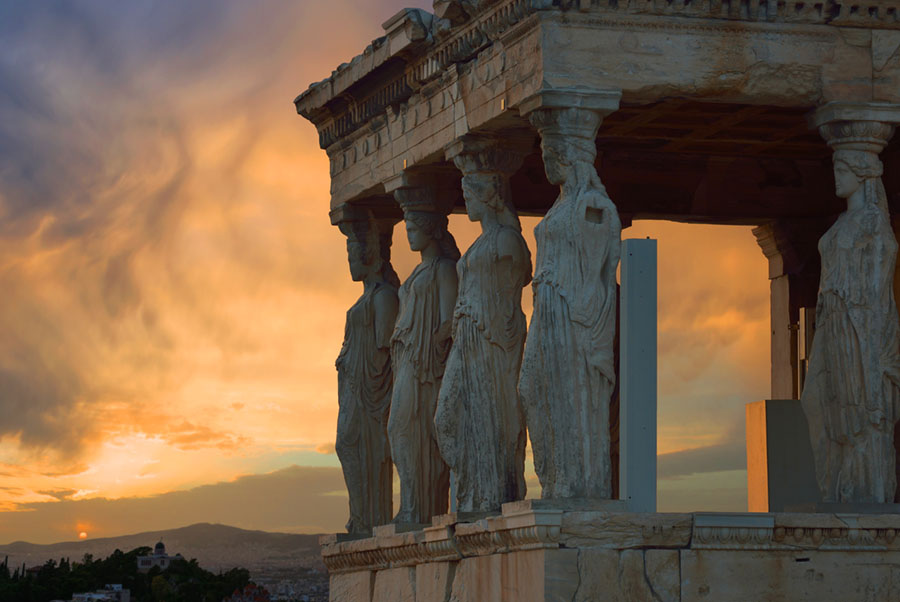
Democracy in Athens Today
Democracy in Athens is Compared to Our System in America. Fairness and Rule by the People Are About as Far Away From the Democracy Which Thrives in Our Modern Police State.
Democracy in Athens during the fifth and fourth centuries might not have been ideal, but it was much better than what the rest of the ancient world was living with.
Democracy is one of the most misinterpreted concepts in history.
The United States was called a democracy even at a time when there thousands of slaves.
Today we call ourselves a democracy, yet there are millions of American citizens who never exercise their right to vote.
The word “democracy” is made up of two Greek words: the noun “demos,” which means “people” and the verb “kratein,” which means “to rule.”
When combined together the word “democracy” means “rule by the ruled” or “government by the people.”
There are some political historians who feel that democracy is the best government structure and therefore believe that Athenian democracy was successful in every way.
Still other historians see grave problems with Athenian democracy, a view that is still held by many today.
Democracy in Athens was in many ways very rigid and once many of the decisions were made, the Athenians were reluctant to go back and re-evaluate.
The same can’t be said of today, and democracy is always being questioned in many countries, not only in the United States.
Early Democracy
A lot of the credit for reforming Athens from an oligarchy to a democracy in the fifth and fourth centuries goes to Cleisthenes, an Athenian Statesman.
Cleisthenes decided to change the political structure of both Athens and Attica. Four tribes were reinstated with ten tribes, each of which was divided into thirds.
Each of these thirds was further divided into 140 municipalities of differing sizes called “demes.”
The reason for this division was so that men of similar minds would be situated in different areas around Athens and Attics rather than all located in the same central location.
The Assembly was only open to men and met four times every month to discuss legislative issues and foreign policies.
Once a decision was made, it was carved in stone and placed in visible places around the city such as in the marketplace.
For the most part, early democracy in Athens operated on a voting system for almost everything that was decided.
Lots were drawn to fill official positions such the chief magistrate of the city, tax collectors, market inspectors, and the polemarch who was in charge of military operations.
Citizens Hold Constitutional Power
The Athenians wanted constitutional power in the hands of the people. Initiatives and proposals were expressed through the Assembly which met once every ten days.
In the Athenians system of democracy there was no such as representation, which today results in expensive and long election campaigns.
People would gather at the Assembly meeting place, a rocky hillside located just within the gates of the city.
People were kicked out of the marketplace so that the Assembly meetings were well attended.
Anyone could address the Assembly if they had a loud voice and could make themselves heard in the crowd.
Well known leaders and speakers had a better chance of being listened to.
The Assembly would vote on issues and policies and whatever they decided became the law of Athens and surrounding lands.
The Golden Mean
At first it might not seem as though democracy in Athens would work and that, with the will of so many people fighting to make decisions, it would end up as an anarchist government system.
Yet the Athenian system of democracy worked very well. One of the reasons for this success was because Athenians believed in the Golden Mean.
They avoided any extremes in their political thinking and decision making, and they were intensely focused on what was good for the majority, a concept that is missing from the democratic system found in many countries today.
One thing that can be said about Athenian democracy is that the issues they needed to vote on were much simpler than today’s issues.
Much of the official concealment and whispering that goes in the politics of the United States today was absent in Athenian times.
Another big difference in democracy in Athens, from most democratic countries today, was that Athenians were much more informed about government and political issues.
For a democracy to work successfully, people need to accept that all men are equal, which means they all have the capability of making reasonable and fair decisions.
In many ways, wealthy and educated Greeks, just as some Americans today, were unable to accept that they were no more important that others.
This has been, and continues to be, one of the major problems with a fair and democratic government system.

 My First Amazing Ayahuasca Experience
My First Amazing Ayahuasca Experience  Pine Needle Tea
Pine Needle Tea  The REAL Controllers of Humanity: The Papal Bloodlines
The REAL Controllers of Humanity: The Papal Bloodlines  Is it Global Warming or Cooling?
Is it Global Warming or Cooling?  Gun Rights and Obama Examined
Gun Rights and Obama Examined